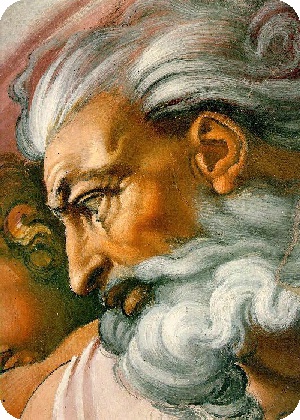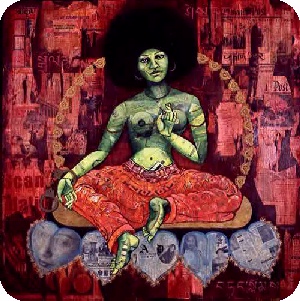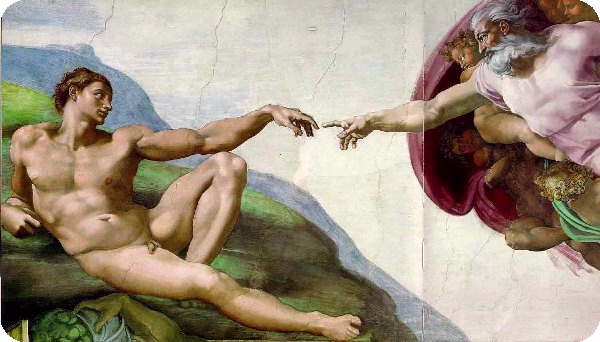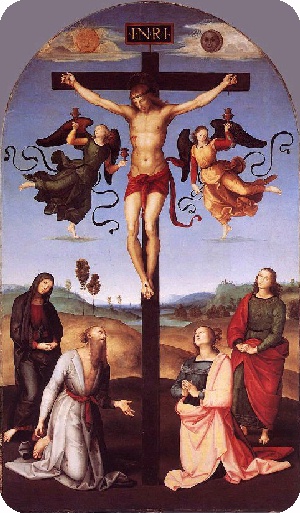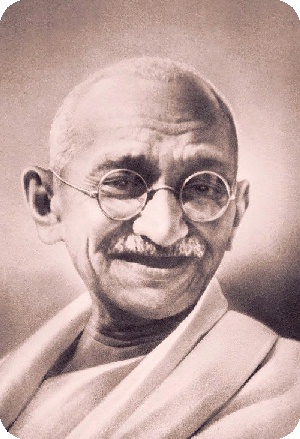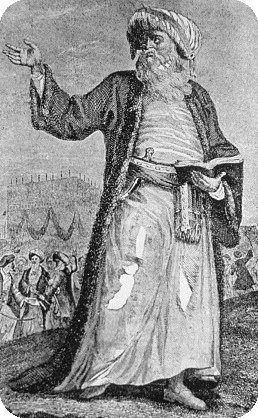 |
|||||
|
Articles about Atheism, Philosophy & Religion
Astrology
Atheism
Buddhism & Confucianism
Catholicism & Christianity
General Religion & Philosophy
Hinduism
Judaism
Islamic
Mythology
Paganism & Alternative
Philosophy
The Origins and Evolution of ReligionHow did mankind first come to exist? What universal force created the stars, the ever expanding galaxy and created life on earth? These are questions philosophers, theologians and holy men and women have been questioning down through the centuries, even during the dawn of man when we first gazed up at the stars and tried to comprehend their significance. In the early stages of human evolution we sought to explain the world around us with mythology, stories of creatures and gods who created the world, the stars and all the creatures on it. In many of the stories humans start off as being innocent and unknowing, but via either snake or the titan Prometheus are given knowledge, fire and the ability to use it. For that the snake lost its legs and Prometheus was staked to a rock and tortured until Hercules freed him millenia later. With that knowledge mankind prospered according to the myths, and these stories evolved over time, passed down over the generations. Some of the stories are remarkably similar, both in context and the personages in them. Odin, Zeus, Jupiter, Ra, Jehovah and Shiva are all remarkably similar in their stature and frequently even visually, suggesting that while the names and places may change the basic idea of a paternal father-figure has remained the same. One thing has changed over the millenia however. The Judeo-Christian god was originally more like Shiva/Shakti (whose combined form was known as Ardhanari or Ardhanarishvara), possessing both male and female counterparts. Over the centuries Judeo-Christianity has abandoned the idea of a female counterpart, preferring in the Greek tradition to portray god as an old man akin to Zeus. This is the result of the Judeo-Christian faith migrating westward out of the Middle-East and encountering the gods of ancient Greece. Religion evolves over time as aspects of other religions either join together or find conflicts. For example the Sumerian fertility/agricultural goddess Lilitu was seen as a threat by the ancient Judeo-Christians, and her myth was subverted and demonized. The goddess, a protector of children and of motherhood, became a winged demon/succubus who sucked the life out of men and killed women and children. Her myth was amalgamated with the myth of Adam and Eve, turning Lilith into the first wife of Adam. When you compare the different myths you come across remarkable similarities (such as the Great Flood Myth or Atlantis/Eden/Atlen/Eten/Atala), but also in the form of stories about people such as the resurrection of Jesus Christ/Hercules/Osiris or the immaculate conception of Mother Mary/DanaŽ. In ancient times, long before written word became prevalent, stories would frequently change, adapt and absorb other myths. With the advent of religious writings these stories became more set in stone, but the changes became more grammatical and the result of translations from different languages. Is it a coincidence that Christianity, Islam and Judaism all worship the God of Abraham? A primary difference is how Jesus is treated in the stories. In Christianity Jesus was eventually considered the son of god (the divinity of Jesus was not set in Christian story until centuries after his death), in Islam Jesus was a prophet, in Judaism Jesus was a charlatan. The result is three very large splinter religions with very similar views on different stories.
|
|
||||
 But religion doesn't stop there. In addition to questioning the stories of the past, how mankind/existence was created it also serves to set down moral code for people to follow. Sometimes this moral code is rather blurry and open to interpretation. For example some of the rules made by religious men of the past really emphasize the treatment of women and issues concerning chastity and modesty. For example women in Islam are expected to dress in a fashion that doesn't show their hair in public, but the same rule also exists in the Christian Bible... but many Christians simply ignore that rule.
But religion doesn't stop there. In addition to questioning the stories of the past, how mankind/existence was created it also serves to set down moral code for people to follow. Sometimes this moral code is rather blurry and open to interpretation. For example some of the rules made by religious men of the past really emphasize the treatment of women and issues concerning chastity and modesty. For example women in Islam are expected to dress in a fashion that doesn't show their hair in public, but the same rule also exists in the Christian Bible... but many Christians simply ignore that rule.
Thus the adherence to specific rules have created sub-groups of various religions. Lutherans, Protestants, Presbyterians and the United Church for example have very different interpretations about sex, homosexuality, violence and the treatment of women. In the reverse direction Roman Catholics and Mormons either strongly adhere to those rules (and confess to breaking them), and in the case of Mormons even make up new rules or break specific ones. In our modern society there are those of us that believe these stories are all a load of hogwash and bullshit, and either don't care about religion (non-religious) or actively point out their disbelief (atheists). A noted example is philosopher Friedrich Nietzsche, who promoted the view of "God is dead" and "eternal return", the belief that the universe/life repeats itself. Even amongst philosophers and atheists there is a lot of room for interpretation. It becomes a question of whether there is an universal divine intelligence guiding the power of creation in the universe, or whether life on planets like Earth is simply an accident of creation. Galileo Galilei for example theorized that life might exist on other planets and wondered if they too questioned their existence and believed in gods. The Catholic Church forced him to recant his beliefs or face execution. Galileo lived out his remaining years under house arrest during the Inquisition. Evolution, Charles Darwin's theory that creatures adapt and change over time by passing new adaptations down to offspring, has been scientifically proven. But naysayers of evolution still believe that humans are somehow exempt from evolution, using the belief that god created mankind in his own image, and that only animals are subject to evolution. The search for the missing link between mankind, cro-magnon man and apes continues to go on and will never end because there will always be a tiny gap between known links. The end result is we can only ever theorize about the nature of existence, the creation of life and whether life exists elsewhere in the universe. We will never truly know how mankind came to be, we can only believe in our theories. But is theories worth fighting and dying over? No. Religion has frequently been used in the past as an excuse for war over territory and power. The only thing truly worth fighting for is freedom. The freedom to believe anything you want.
Shifting Tides: The Evolving Landscape of Religious DemographicsBy Chaz G. T. Patto - June 2023. Religion has been an integral part of human civilization, shaping societies, belief systems, and cultural identities for centuries. However, the dynamics of religious demographics are not static. Over time, religious affiliations have undergone significant transformations, influenced by various social, political, and cultural factors. This article explores the slow but notable changes occurring in religious demographics, highlighting the key trends that are reshaping the religious landscape. Decline of Traditional Religions: In many parts of the world, traditional religions that have long held sway are experiencing a decline in adherents. Factors such as urbanization, globalization, and the rise of secularism have contributed to this shift. Younger generations, in particular, are often less likely to adhere strictly to traditional religious practices and are exploring alternative belief systems or adopting a more secular outlook. Rise of Non-Affiliation and Secularism: One of the most significant changes in religious demographics is the rise of the religiously unaffiliated, often referred to as "nones." This category includes atheists, agnostics, and individuals who do not identify with any particular religious group. Increasing numbers of people are embracing secularism and choosing to live their lives without religious affiliations or religious practice. Growth of New Religious Movements: While some traditional religions are experiencing decline, there is also an emergence of new religious movements that attract followers. These movements often offer alternative spiritual practices or beliefs that resonate with individuals seeking a more personalized, inclusive, or eclectic approach to spirituality. New religious movements encompass a diverse range of practices, from neo-paganism and New Age spirituality to alternative forms of Buddhism and various syncretic belief systems. Globalization and Religious Pluralism: Globalization has played a crucial role in fostering religious pluralism by facilitating the spread of religious ideas and facilitating multicultural societies. Increased mobility, migration, and the interconnectedness of societies have contributed to the diversification of religious demographics within many countries. This has led to greater religious diversity and the coexistence of multiple religious traditions within local communities. Religious Revivals and Fundamentalism: While some religious traditions are experiencing decline, others are witnessing revivals and renewed devotion among their followers. Religious fundamentalism, characterized by strict adherence to traditional beliefs and practices, has gained traction in certain regions. These movements often emerge as responses to social and cultural changes, seeking to preserve and reinforce traditional religious values in the face of perceived threats. Interfaith Dialogue and Collaboration: As religious demographics continue to shift, there is an increasing emphasis on interfaith dialogue and collaboration. In recognition of the diversity of beliefs and practices, efforts are being made to foster mutual understanding, respect, and cooperation among different religious communities. Interfaith initiatives aim to promote peaceful coexistence, address common social challenges, and cultivate a sense of shared humanity. Final Thoughts: The dynamics of religious demographics are in a constant state of flux. While traditional religious affiliations may decline in some regions, new religious movements emerge, and the religiously unaffiliated grow in number. Globalization, urbanization, secularism, and social change all contribute to these shifts. The evolving religious landscape calls for a nuanced understanding of the diverse beliefs and practices that shape our societies and highlights the importance of fostering interfaith dialogue and promoting mutual respect in an increasingly pluralistic world.
The Last 100 Years of World ReligionIn 1900, Believers by Percentage:Judeo-Christianity 34.5% Chinese-Traditional* 23.5% Hinduism 12.5% Islam 12.3% Buddhism 7.8% Other 9.2% Non-Religious/Atheist 0.2% In 2000, Believers by Percentage:
*Note: Chinese-Traditional is a combination of Taoist, Confucian and Buddhism.
Major Changes during the last 100 years:
Statistical Source: National Geographic's "Geography of Religion", 2004. Believers by Continent (sorted by dominant religion first):
Countries with the Most Hindus
Countries with the Most Christians:
Countries with the Most Muslims
Countries with the Most Buddhists:
Countries with the Most Jews
Statistical Source: National Geographic's "Geography of Religion", 2004.
Religious Milestones: 1900 - Present 1906 - Mohandas Karamchand Gandhi uses satyagraha (non-violent protest) for the first time to protest against Indian segregation/unfair laws in South Africa. 1928 - Mohandas Karamchand Gandhi pushes for India to be given Dominion Status. 1941-1945 - Six million Jews are murdered by NAZI-Christians during WWII. 1947 - Creation of Muslim Pakistan. 1948 - Mohandas Karamchand Gandhi is assassinated by a Hindu radical. His last words were "Oh God." 1948 - The State of Israel is Founded. 1948 - World Council of Churches formed. 1950 - World Fellowship of Buddhists formed. 1959 - The Dalai Lama escapes to India during the Chinese invasion of Tibet. 1962-65 - The Second Vatican Council marks shift to the modern Catholic Church. 1966 - Maulana Karenga creates Kwanzaa. 1966 - Swami Prabhupuda founds the International Society for Krishna Consciousness. 1967 - The Six Day War. 1967 - Israel gains control of East Jerusalem. 1968 - Liberation theology begins at Second Latin American Bishops' Conference. 1971 - East Pakistan secedes from West Pakistan to become Bangladesh. 1975 - Incorporation of Sikhism into the Republic of India.
1978 - John Paul II becomes the Pope in the Vatican. 1978 - Louis Farrakhan forms his own sect of the Nation of Islam. 1979 - Islamic Republic established in Iran under Ayatollah Khomeini. 1980-92 - Falasha migrations from Ethiopia to Israel. 1982 - The film "Gandhi" is released. It is considered to be the greatest religious movie of all time. It won 8 Oscars and the Academy Award for Best Picture. 1987 - Palestinian Islamic movement Hamas founded. 1988 - Cardinal Joseph Ratzinger is charged with molesting a choirboy by the Italian & German police. 1989 - Dalai Lama receives Nobel Peace Prize. 1990 - The United States declares war on Iraq, but later backs down because of fears of "another Vietnam". 1992 - Militant Hindu nationalists destroy mosque at Ayodhya, the birthplace of Rama. 1993 - Pope John Paul II says that "Condoms are evil tools of the Devil." 1993 - "Schindlers List" is released, a film about a German Catholic businessman who was instrumental in saving the lives of over one thousand Polish Jews during the Holocaust. The film won 7 Oscars and the 1993 Academy Award for Best Picture. 1994 - The Taliban gains control of Afghanistan with the aid of the United States.
1998 - Pope John Paul II visits Cuba. 2001 - Hindu celebration of Kumbh Mela in Allahabad, the largest religious gathering/ceremony in world history. 2001 - Sept. 11th, al-Qaeda terrorists destroy the World Trade Centre in NYC. 2002 - The United States declares war against the Taliban in Afghanistan. 2003 - March 18th, the United States declares war against Iraq. 2003 - The Iraq Civil War begins. 2004 - The Passion of the Christ upsets box offices and viewers. The film is banned in many countries for its anti-semitism. It was nominated for 3 Oscars but never won anything. 2004 - Jedi declared an official world religion. 2005 - Pope John Paul II dies. 2005 - Bishop Joseph Ratzinger becomes Pope Benedict XVI. 2005 - A blasphemous cartoon depicting the Prophet Muhammad with a bomb on his head causes deadly riots in the middle east and a consumer boycott of all products from Denmark. 2006 - Mel Gibson makes anti-semitic remarks. 2006 - Israel attacks Lebanon. 2006 - The United States threatens Iran with nuclear war. Iran says it has the right to defend itself with nuclear weapons. 2007 - Documentary exposes the Lost Tomb of Jesus outside of Jerusalem.
2007 - Right wing evangelist Jerry Falwell dies. 2007 - A British teache is arrested in Sudan for letting a 7-year-old student name his teddy bear Mohammed, a common Arabic name. 2007 - The cost of sex abuse lawsuits against the Roman Catholic Church in the United States surpasses $2.1 billion USD. 2007 - The Taliban captures and kills two Korean Christian missionaries in Afghanistan. 2008 - Religious fundamentalist and Vice-Presidential candidate Sarah Palin's family has a shotgun wedding when her 17-year-old daughter Bristol gets pregnant. The wedding was later called off. 2008 - The Mormon Church is rocked by multiple scandals including polygamy, rape, cult-like behaviour and the arrest of prominent Mormon leaders on charges of conspiracy and sexual misconduct with minors. 2009 - The percentage of religious Jews living in the United States drops 20% over the past 2 decades. Rising numbers of Jews are becoming non-observant, secular or atheist. Approx. half of all Jews in the USA are now secular. 2009 - Pope Benedict XVI signs a record deal with Geffen Records. 2009 - A Dutch university fires Islamic scholar Tariq Ramadan for hosting a show on Iran's state television. Ramadan is a moderate who believes in seeks to modernizing Shariah law. 2009 - Buddhism is the fastest-growing religion in British jails, converting at 8 times the rate compared to a decade earlier.
|
|||||
|
|
|||||
Website Design by Charles Moffat


